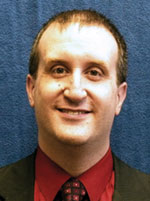Evangelization Outreach / Andrew Motyka
Sing more psalms, a profound expression of the faith and human experience
 Psalm singing is a core part of Christian worship. From the earliest days of the Church, we have sung psalms during the liturgy. This extends not just through the Liturgy of the Hours, but through the Mass as well.
Psalm singing is a core part of Christian worship. From the earliest days of the Church, we have sung psalms during the liturgy. This extends not just through the Liturgy of the Hours, but through the Mass as well.
The practice of singing psalms at Mass is encouraged by the Church’s own norms on the liturgy for many reasons. Psalms connect us to our ancestors in faith and to their liturgical practice. Psalms express the Christian faith in a way unique to all of Scripture, namely that they speak to universal human experiences. Psalms are especially suited for singing at Mass.
The General Instruction on the Roman Missal (often called the GIRM, the norms for celebrating the Mass in the Roman rite) gives options for music choices at multiple points in the Mass, namely the entrance, offertory and Communion. These options are: the antiphon and psalm from the Graduale Romanum or the Roman Missal; the seasonal antiphon and psalm from the Graduale Simplex; another antiphon and psalm from an approved source; and another appropriate song.
Without giving any of these options a preference (which would require a different discussion), it should be noted that three of these four options are psalms. The Church clearly has a preference for psalm singing at Mass. Since these parts of the Mass are often of variable length, psalms serve a practical purpose for being able to be extended or shortened to fit the liturgical action.
Psalm singing finds its roots in Jewish temple worship, and this practice carried into the early Church, which did not see itself as separate from the Jewish faith, but a fulfillment of it. While the musical settings have long been lost, there are records of psalm singing in the earliest examples of the Mass.
The psalms connect us to our ancient worship by putting into our mouths the same words that have been sung for millennia. How powerful it is to know that, not only are we singing the same words as our Christian brothers and sisters around the world, but the same words as our ancestors in faith! Psalm singing unites us in our worship with the communion of saints.
Psalms are a profound expression of the faith, a true “song of the people.” They express the full range of human experience—from praise and joy, to sorrow and repentance, to frustration, anger, redemption and victory.
Furthermore, because we read all Scripture in light of the Gospel, the Psalms come to life even more vividly for us Christians. We do not sing Psalm 45 simply as a song of princesses being brought before the king of Israel, but as a sign of the Blessed Virgin Mary being crowned in heaven. We do not read Psalm 23 simply as thanksgiving for King David’s anointing, but as the fulfillment of Israel’s kingdom in the person of Jesus Christ. We can write songs that express these types of prayer, but none are as historically founded as the Scriptures of the Church.
So what does this mean for our music choices at Mass? Should we stop singing hymns or other songs? Of course not. While hymns found their beginning being prayed during the Liturgy of the Hours, they have been a part of the Mass by assertion for centuries now.
As you can see above in the GIRM, the Church allows for other songs and hymns to be sung at Mass. Many people do not realize, though, that the norms of the Church both allow for, and arguably prefer, the use of the psalms during the Mass. Whether we pray them in addition to or instead of hymns and songs, we should certainly sing more psalms.
(Andrew Motyka is the director of Archdiocesan and Cathedral Liturgical Music for the Archdiocese of Indianapolis.) †
 Psalm singing is a core part of Christian worship. From the earliest days of the Church, we have sung psalms during the liturgy. This extends not just through the Liturgy of the Hours, but through the Mass as well.
Psalm singing is a core part of Christian worship. From the earliest days of the Church, we have sung psalms during the liturgy. This extends not just through the Liturgy of the Hours, but through the Mass as well.